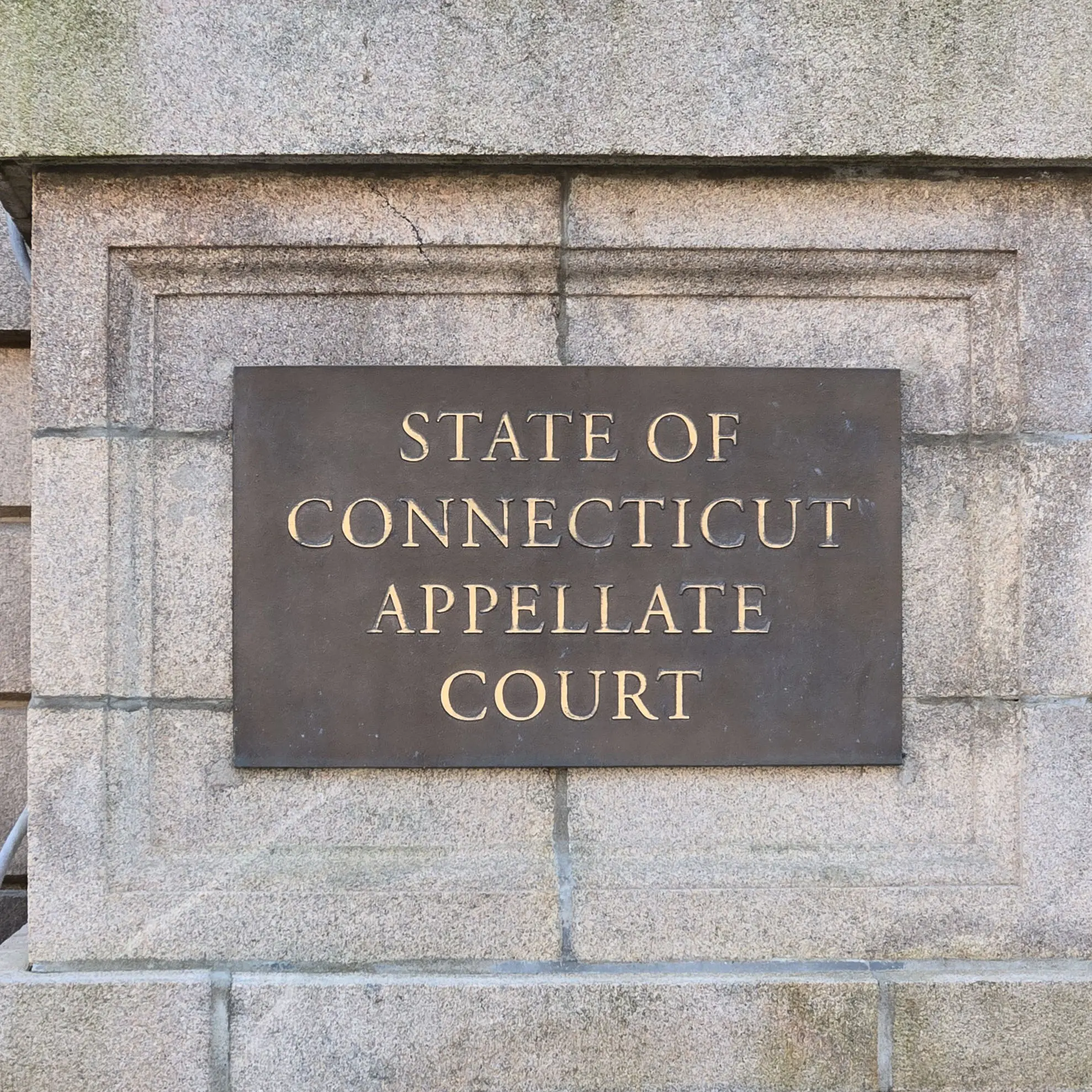In Cardona v. Padilla, the Connecticut Appellate Court considered whether the trial court abused its discretion in making its custody and visitation orders, which substantially limited the non-custodial parent’s access to parenting time with the child. In this family appeal, the Appellate Court held that the trial court abused its discretion because the trial court failed to make findings justifying its restrictive visitation order.
Background of the Custody and Visitation Dispute
The parties, who were never married, have one minor child, born in 2019. They originally lived together in New York with their respective children from prior relationships. In 2021, the father relocated to Florida with his other children, while the mother remained in New York with their child and her son from a previous relationship. The parties initially alternated visits, but in August 2021, while the mother and the child were visiting Florida, an incident occurred, and as a result, the father accused the mother of assault. The mother was arrested but later completed a deferred prosecution program, and the police did not pursue charges. Shortly after, the mother left Florida with the child and moved to Danbury, Connecticut. (Note: At trial, the Court found the mother’s recounting of this incident more credible than the father’s.)
A contentious custody dispute followed. The father initially pursued custody in Florida, but the Florida court later dismissed the case for lack of jurisdiction. In May 2022, the mother initiated custody proceedings in Connecticut, seeking sole legal and physical custody. The father responded with a cross-complaint requesting sole custody. Over the next several months, the trial court issued multiple interim orders, including a December 2022 order requiring the mother to return the child to the father in Florida.
In April 2023, the court granted the father’s application for custody, citing concerns about the child’s psychological well-being. A final trial on custody and visitation took place in August 2023, after which the trial court awarded the parties joint legal custody, granted the father primary physical custody in Florida, and ordered the mother to have summer parenting time in Connecticut, along with limited holiday parenting time and virtual visitation. The court did not order any in-person visitation in Florida.
As the family court indicated in its order,
“the child is going to spend two and a half to three quality months in the warm weather in New England, and eight and a half to nine quality months—nine to nine and a half quality months minus a couple of weeks in Florida. That’s the way it is.”
And although the trial court found that both parents were flawed, it expressly indicated that it did not find either party to be unfit.
Plaintiff-Mother’s Custody and Visitation Appeal in Connecticut
Following the trial court’s judgment, the plaintiff-mother appealed and claimed, among other things, that the trial court abused its discretion in making its custody and visitation orders. This post focuses solely on the plaintiff-mother’s arguments regarding those orders, as opposed to additional issues raised on appeal.
Specifically, the mother argued that the visitation order unreasonably restricted her in-person contact with the child, creating extended periods—up to four months—without any visits. She also challenged the lack of court-ordered visitation in Florida and the absence of holiday or birthday parenting time beyond Easter.
Appellate procedural note: The father did not file a brief. As a result, the Appellate Court considered this appeal based on the mother’s brief and the appellate record. And pursuant to Practice Book § 70-4, the Court did not permit oral argument from the father.
Appellate Court Ruling: Visitation Order Overturned
The Appellate Court agreed with the plaintiff-mother’s argument and held that the trial court abused its discretion in issuing its custody and visitation orders.
When Does a Connecticut Family Court Abuse Its Discretion?
In the context of Connecticut family appeals, our appellate courts apply the abuse of discretion standard to review child custody and family matters. Under this standard of review, appellate courts do not disturb a trial court’s orders unless the court has abused its discretion (e.g., determines court could not reasonably conclude as it did).
Legal Standards for Connecticut Custody and Visitation Orders
In Connecticut, General Statutes § 46b-56 governs orders about the custody and care of minor children.
Section 46b-56 gives the family court broad discretion while crafting these orders. It provides:
“In any controversy before the Superior Court as to the custody or care of minor children … the court may make … any proper order regarding the custody, care, education, visitation and support of the children if it has jurisdiction …. Subject to the provisions of section 46b-56a, the court may assign parental responsibility for raising the child to the parents jointly, or may award custody to either parent or to a third party, according to its best judgment upon the facts of the case and subject to such conditions and limitations as it deems equitable…. (b) In making … any order as provided in subsection (a) of this section, the rights and responsibilities of both parents shall be considered and the court shall enter orders accordingly that serve the best interests of the child and provide the child with the active and consistent involvement of both parents commensurate with their abilities and interests…. [Section] 46b-56 (c) directs the court, when making any order regarding the custody, care, education, visitation and support of children, to consider the best interests of the child, and in doing so [the court] may consider, but shall not be limited to, one or more of seventeen enumerated factors …. The court is not required to assign any weight to any of the factors that it considers.”
(Footnote omitted.)
How the Connecticut Appellate Court Analyzed the Visitation Order
The plaintiff argued that, based on the trial court’s order, she would not see the child in-person at all between mid-August until late December (approximately 4 months), and from August until March (7 months), she would only have parenting time for 7 days, or approximately 3 percent of the time. The trial court also declined to order that the plaintiff could exercise her parental rights in Florida during that time, if she chose to travel. Based on these limitations, the plaintiff argued that the trial court’s order violated General Statutes § 46b-56 (b), which requires the court to enter orders that provide the child with active and consistent involvement of both parents.
The Connecticut Appellate Court agreed. It began by interpreting the plain text of § 46b-56 (b) to convey “a legislative intent that orders regarding custody and visitation provide the child with active and regular or steady involvement by both parents, when the circumstances permit.”
The Appellate Court then reviewed the court’s visitation order, noting that it significantly limits the plaintiff’s in-person visitation with the child. The Court explained that, during the 9-month period from mid-August to mid-May, the plaintiff would only have in-person visitation for 12 days, with lengthy periods of time with no in-person visitation.
Yet the trial court made no findings about the plaintiff’s fitness that would justify restricting her visitation in the child’s best interest. To the contrary, the Appellate Court noted that the trial court specifically found that the plaintiff was not unfit and that neither parent posed a physical danger to the child.
Instead, the trial court indicated that its “major consideration” was its concern about the child traveling back and forth between Connecticut and Florida. But the Appellate Court explained that such concern did not provide a basis for the trial court’s refusal to order visitation for the plaintiff with the child in Florida, even after the plaintiff’s attorney specifically requested those orders.
Based on the record, the Appellate Court held that the trial court “abused its discretion by crafting a visitation order that does not provide the child with the active and consistent involvement of the plaintiff.” The Appellate Court explained that the trial court failed to enter findings about why the plaintiff should not play an active role in the child’s life.
Ultimately, the Court explained that reasonable visitation for a noncustodial parent generally is in the best interests of the child. The trial court’s visitation order substantially limited the plaintiff’s ability to play a consistent role in the child’s life. As a result, the Appellate Court reversed the trial court’s order and remanded the case for a new visitation hearing.
Key Takeaways from the Connecticut Appellate Court’s Decision
The Appellate Court determined that although there is no specific formula about what is “active and consistent” involvement by a parent in a child’s life, the “very unbalanced” visitation order was not supported by any underlying factual findings about why such a limited visitation schedule is warranted. The trial court’s order was unbalanced and inconsistent with the clear legislative intent in General Statutes § 46b-56 (b) that both parents remain actively and consistently involved in the child’s life.
Lessons for Connecticut Family Lawyers Handling Custody Disputes and Appeals
Divorce, custody, and visitation litigation is contentious. If a party faces an unbalanced visitation order, family attorneys can rely on Cardona to emphasize the need for a visitation order to allow both parents to have “active and consistent” involvement in the child’s life.
The caveat is that each order must serve the best interests of a child, and so, as the Appellate Court noted, regular involvement of both parents may not always be achievable in every case.
Read the full decision in Cardona v. Padilla.
Navigating custody and visitation orders involving parents who live in different states is complex. If you have questions about how to challenge or defend these types of visitation orders at trial or on appeal, contact me to discuss.


